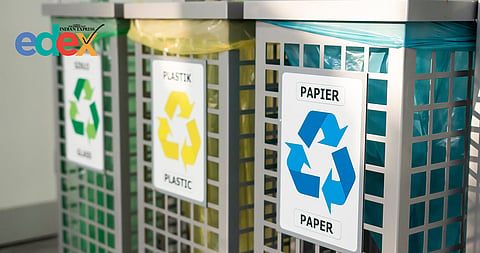

“Waste production is merely a symptom; the disease is the lifestyle. No solution will be sustainable if lifestyles are not changed at the individual and family levels,” said Prof V Jagannatha, a former scientist at the Indian Space Research Organisation, on Tuesday, November 18.
He was speaking at a panel on electronic waste at the Conference on Circular Economy and Sustainability held by the Karnataka State Pollution Control Board (KSPCB).
Chief Executive Officer (CEO) at Saahas and environmentalist Divya Tiwari, moderating the panel, underlined how fast consumerism and product-oriented lifestyles aggravate waste.
Outdated laws, constitutional duty: Experts
Former professor at the National Institute of Technology Karnataka Dr G Srinikethan mentioned that the rules and regulations on waste are outdated and lauded the recent observation of the Karnataka High Court:
“This court is of the considered opinion that the management of solid waste is not merely a statutory duty of the municipal corporations but a profound constitutional obligation, inextricably linked to the fundamental right to life under Article 21.”
Orphan products, non-recyclable plastics worsen e-waste
Both Jayaram Guha (co-founder at Terranova Eco Management) and Sushanta Kumar (scientist at the Central Institute of Plastics Engineering & Technology — CIPET) agreed that a majority of “orphan products” like keyboards are the bane of e-waste, as they are mostly made of thermoplastics that are not easily recyclable.
Urgent shift to circular battery economy needed
Dr Mohan Krishna, manager-research at TCI-Indian Institute of Management Bangalore, held a small demonstration on batteries and the burden they cause on e-waste production. Citing the rise in popularity of electric vehicles, he said battery demand would grow at least five to seven times by the next decade. He urged a steady movement to circular battery economy from the current linear model, as “finite resources cannot be served towards infinite consumption.”
